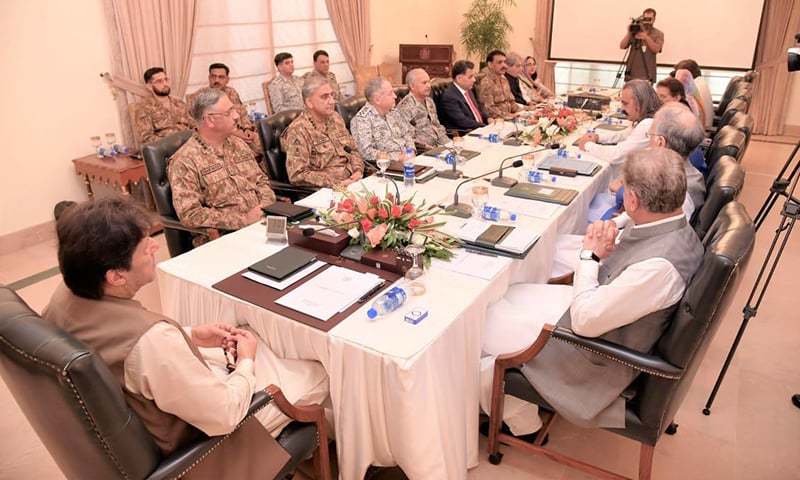A meeting of the National Security Committee (NSC) was held on Monday to deliberate on the emerging situation in Afghanistan. The NSC meeting was chaired by Prime Minister Imran Khan and attended by senior cabinet members and services chiefs.
The participants were briefed on the latest developments in Afghanistan and their possible impact on Pakistan and the region.
“The NSC noted that Pakistan was a victim of the decades-long conflict in Afghanistan and therefore desired peace and stability. Participants reiterated that Pakistan remains committed to an inclusive political settlement as the way forward representing all Afghan ethnic groups. It was reaffirmed that Pakistan would continue to work with the international community and all Afghan stakeholders to facilitate an inclusive political settlement in the country,” read a press release issued after the meeting.
A meeting of the National Security Committee was convened on Monday, the 16th of August, 2021 to deliberate on the emerging situation in Afghanistan. The NSC meeting was chaired by Prime Minister @ImranKhanPTI and attended by senior cabinet members and services chiefs. pic.twitter.com/hQ0xOvE9y0
— Prime Minister's Office, Pakistan (@PakPMO) August 16, 2021
“The NSC called on all parties in Afghanistan to respect the rule of law, protect the fundamental human rights of all Afghans, and ensure that Afghan soil is not used by any terrorist organisation/group against any country.”
PM Khan said all possible facilities be made available to repatriate Pakistanis, diplomats, journalists, and staff of international organisations seeking to leave Afghanistan. The committee reiterated Pakistan’s stance that the conflict in Afghanistan never had a military solution.
“The ideal time to end the conflict through negotiations might have been when the United States (US)/ North Atlantic Treaty Organisation (NATO) troops were at maximum military strength in Afghanistan. Continuation of foreign military presence for a longer duration now would not have yielded a different outcome. Therefore, endorsement by the Biden administration of the previous US administration’s decision of troops withdrawal is indeed a logical conclusion to this conflict,” added the press release.
“It is now time for the international community to work together to ensure an inclusive political settlement for long-term peace, security, and development of Afghanistan/ the region.”







